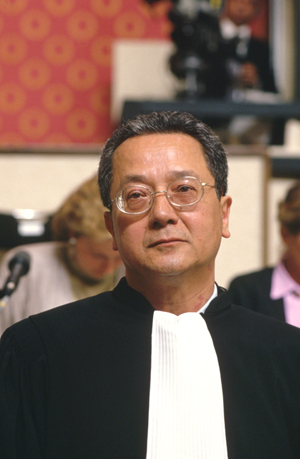FILM-FORWARD.COMReviews of Recent Independent, Foreign, & Documentary Films in Theaters and DVD/Home Video
Directed by Barbet Schroeder. Produced by Rita Dagher. Director of Photography Caroline Champetier & Jean-Luc Perreard. Edited by Nelly Quettier. Music by Jorge Arriagada. Released by Magnolia Pictures. Language: French with English subtitles. Country of Origin: France. 138 min. Not Rated.
Rather than dredge through the causes of terrorism, Schroeder’s interest lies in placing Vergès within the maze of international extremists that emerged in the late ’60s. (This fascinating documentary is sort of like a radical left-wing “Where’s Waldo?”) However, neither the attorney’s political education nor his upbringing in Réunion (with a French father and a Vietnamese mother) is addressed; there’s bound to be plenty of outtakes on the DVD. Unabashedly admitting fondness for the good life, Vergès is a picture of bourgeoisie complicity, oozing with confidence, if not smugness, puffing his fat cigar behind his desk in his well-appointed office, indirectly blowing smoke in front of the viewer. His simplistic proclamations, such as referring to Israel as a colonizer, will likely infuriate. Despite his unobtrusive presence, Schroeder doesn’t let Vergès off the hook. In a disclaimer, the director reminds the viewer that this film portrays Vergès through his point of view. He leaves no doubt of his opinion by subtly clarifying Vergès’s connection to an unrepentant Swiss Nazi and various terrorists groups. During Algeria War of Independence, Vergès defended Djamila Bouhired, the woman upon whom the fictitious female bombers in Gillo Pontecorvo’s film The Battle of Algiers were based. Caught and tortured, she was tried for terrorism, and faced the guillotine. During the trial and Bouhired’s appeal, Vergès fell in love with her. Bizarrely and eerily, he will develop a deep personal bond with another female prisoner (and client), the girlfriend and bombing accomplice of Carlos the Jackal.
Schroeder travels around the world, deeply delving into murky international intrigue while on the trail of Vergès’s possible whereabouts during
his underground years in the ’70s, when he dropped out of sight. One possibility: Cambodia. He had known Pol Pot when both were students in Paris,
but two of the dictator’s surviving aides deny Vergès was in the country, during which time millions were murdered in reeducation camps. On camera,
Vergès refutes this death toll, claiming the numbers have been conflated from the casualties of the U.S. bombings and embargo. Relaxed and never
raising his voice, he’s almost believable.
Kent Turner
|

